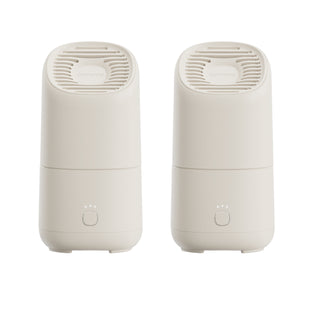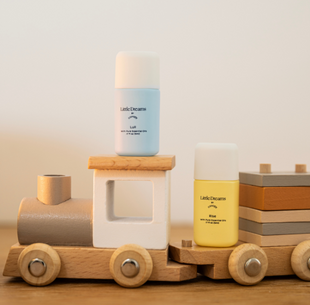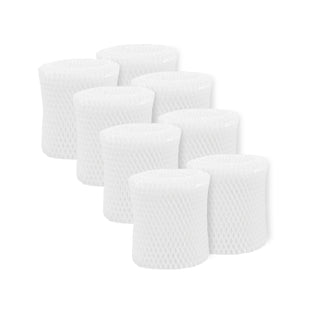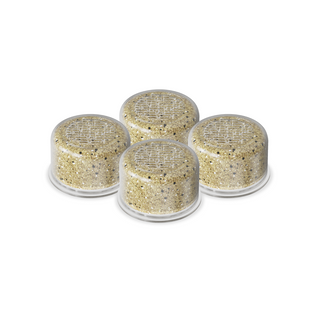We have all been there: knees and elbows that itch with dry, flaky skin… Hands with slight cracks at the creases… chapped skin around your nose…
Dry skin is particularly frustrating and exhausting when you cannot quite nail down the source. You may apply a light moisturizer in the morning or in the evening, but it hasn’t completely cured your dry skin. What should you do?
We have the answers! But first, let’s talk about the prominent causes of dry skin.
What Causes Dry Skin?

Dry skin is a common condition caused by a number of factors. The most common dry skin offenders are: weather, hot showers and baths, or harsh soaps.
Weather
Weather and seasonality are responsible for most cases of dry skin. The frigid air of the winter months causes the skin to lose water at an accelerated rate as the lower temperatures zap moisture from your body straight into the atmosphere.
The warmer, summer months can also dry out your skin. Extended exposure to the sun accelerates water loss, creating that dry, dehydrated feeling after a long day at the beach or the pool.
Hot Showers or Baths
While scalding hot showers feel delightful during the cold, dry winter months, they can wreak havoc on your skin. Extensive exposure to high water temperatures from your shower, a hot tub, or a hot bath can strip your skin of natural oils and moisture.
Harsh Soaps
Depending on your daily routine or profession, you may have regular exposure to harsh, drying soaps or detergents.
Many dish soaps contain an ingredient lineup that would make you blush, but we use them bare-handed to keep food from crusting on our dishes and causing a health hazard. Yikes!
If you are a hairstylist or a medical professional your hands are likely submerged in water for sanitation constantly. The excessive exposure to water and chemicals from detergents and hand soap strips the natural oils from your hands leading to dryness, irritation, and (in severe cases) cracking or bleeding.
How to Treat Dry Skin
If your severely dry skin does not improve with various lifestyle changes, if you notice redness and inflammation, if you have any open sores or large areas of skin peeling, you should visit your dermatologist.
More often than not, however, you can diagnose and treat your dry skin with simple lifestyle changes, a few products, and a little TLC.
Tip #1: Reduce Your Shower Time
Ideally, lukewarm or cold showers are preferable for optimal skin health. That being said, we understand that lukewarm or cold showers during the winter months sound like a form of torture. If you can’t manage to reduce your shower temperature a few degrees, try reducing your shower time to the bare essentials (pun intended).
Tip #2: Choose the Right Moisturizer
Incorporating a moisturizer into your daily routine works wonders on improving your skin’s moisture content. In fact, applying moisturizer directly after your (hopefully warm not hot) shower while your skin is still slightly damp will help to seal in hydration for long term benefits..
While there is no one size fits all miracle moisturizer that works for every skin type, there are a few key ingredients to identify when browsing the endless options in the skincare aisle:
- Humectants like hyaluronic acid, glycerin, and lecithin are key ingredients that help to attract moisture to the skin
- Denser ingredients like petroleum jelly, lanolin, mineral oil, silicones, or natural plant butters (like shea butter, cocoa butter, and jojoba butter) create a thick protective layer that seals in hydration. These types of ingredients are best before bed to reduce moisture loss through the night.
- Natural oils like avocado oil, coconut oil, argan oil, and olive oil contain essential fatty acids that help to soothe and protect the skin.
Tip #3: Layers are Your Friend
Scarves, mittens, beanies, and puffy jackets were created for a reason. These winter staples were created to protect your delicate skin from the harsh elements. A great way to reduce your chances of developing chronic, seasonally-induced dry skin is to cover up.
Covering up does not just include your winter wardrobe. Using lots of blankets for cover during the winter months will allow you to keep your thermostat at a moderate 72 - 75 degrees. The less dry heat you blast into your home, the better your chances of keeping well-hydrated skin all year long.
How a Humidifier Can Help with Dry Skin
Sometimes you need a little extra help. A humidifier can provide additional hydration to your skin when moisturizers, shorter showers, and limited exposure to the elements just doesn’t cut it.
How it Works

“You should drink 8-10 glasses of water per day.”
Chances are you have heard this recommendation countless times throughout your life. While we generally think about how important water is for our insides, we rarely think about how important water is for our largest organ: our skin.
The outermost layer of the skin is the stratum corneum or the “moisture barrier.” This protective layer ensures the lower layers of skin (the dermis and the hypodermis) remain hydrated, nourished, and protected at all times.
The optimal concentration of water in your skin is between 10-30%. When the skin evaporates water more rapidly than it is replenished, it will become dry, itchy, red or inflamed.
A humidifier elevates the moisture content of a particular space. This elevated moisture sits on the skin and is ultimately absorbed by the moisture barrier and delivered to the lower layers of the skin. The result is a supple, hydrated complexion.
Canopy humidifiers are the best kept secret for hydrated skin. Canopy is designed for all skin types, and is proven to help your skin in the following ways:
- Soothe red, dull, and rough skin
- Smooth fine lines and wrinkles
- Fortify your skin barrier to help protect against bacteria and irritants
- Increase efficacy of topical skincare products
- Combat dryness and sensitivity























